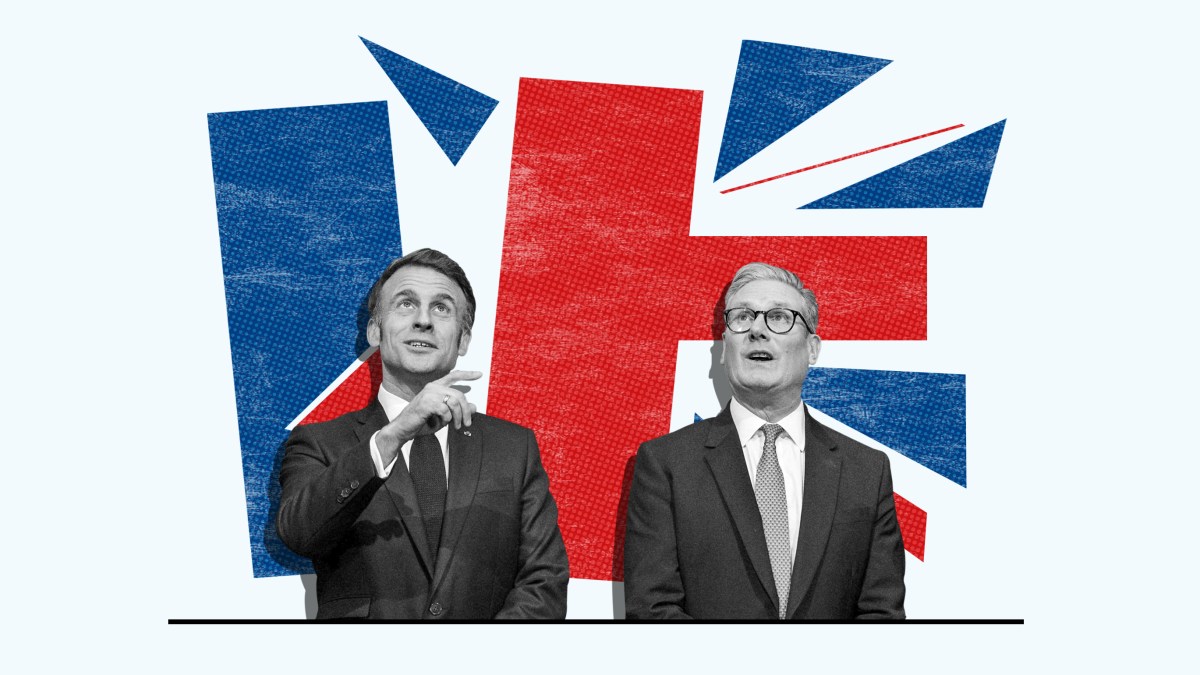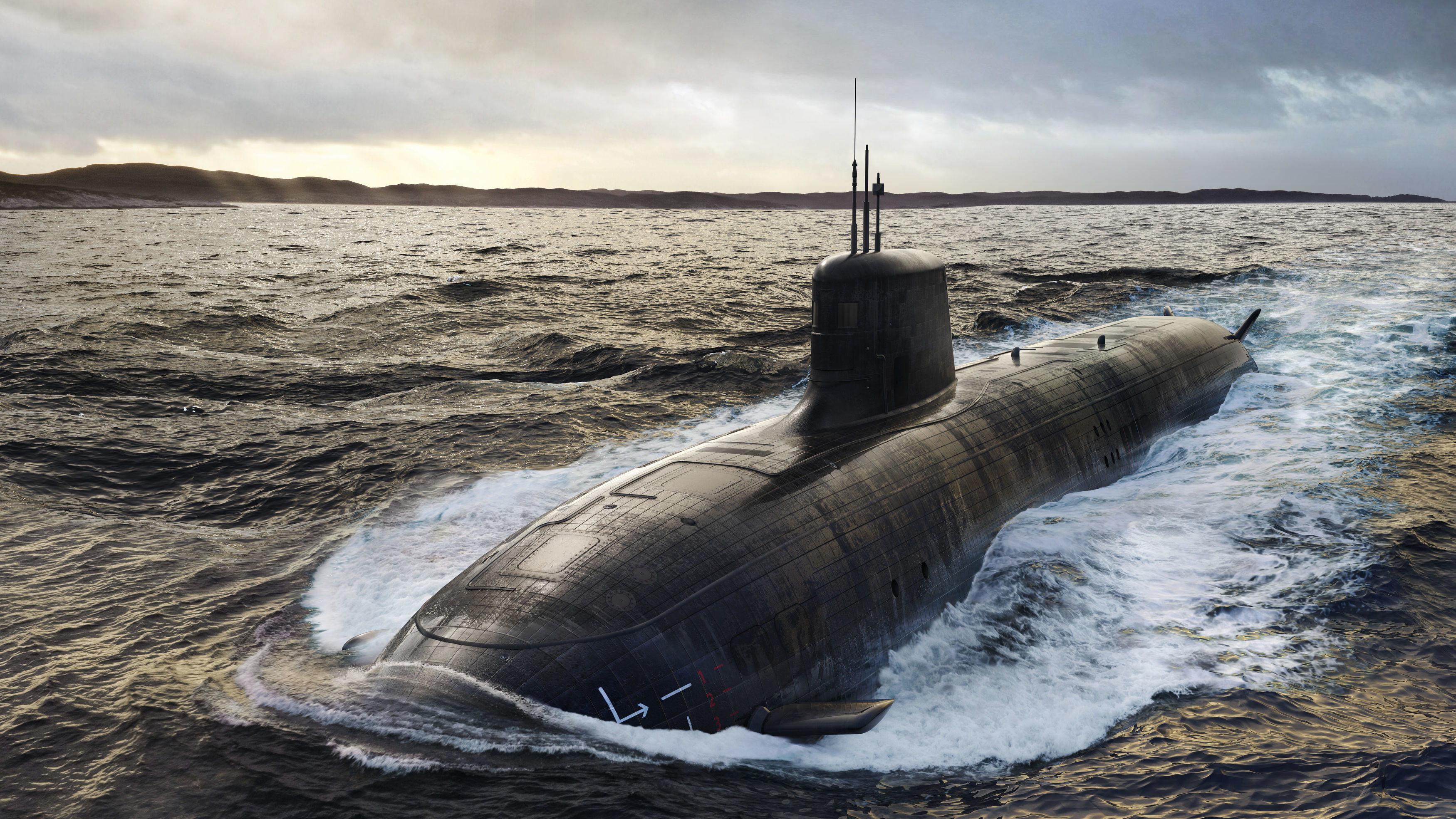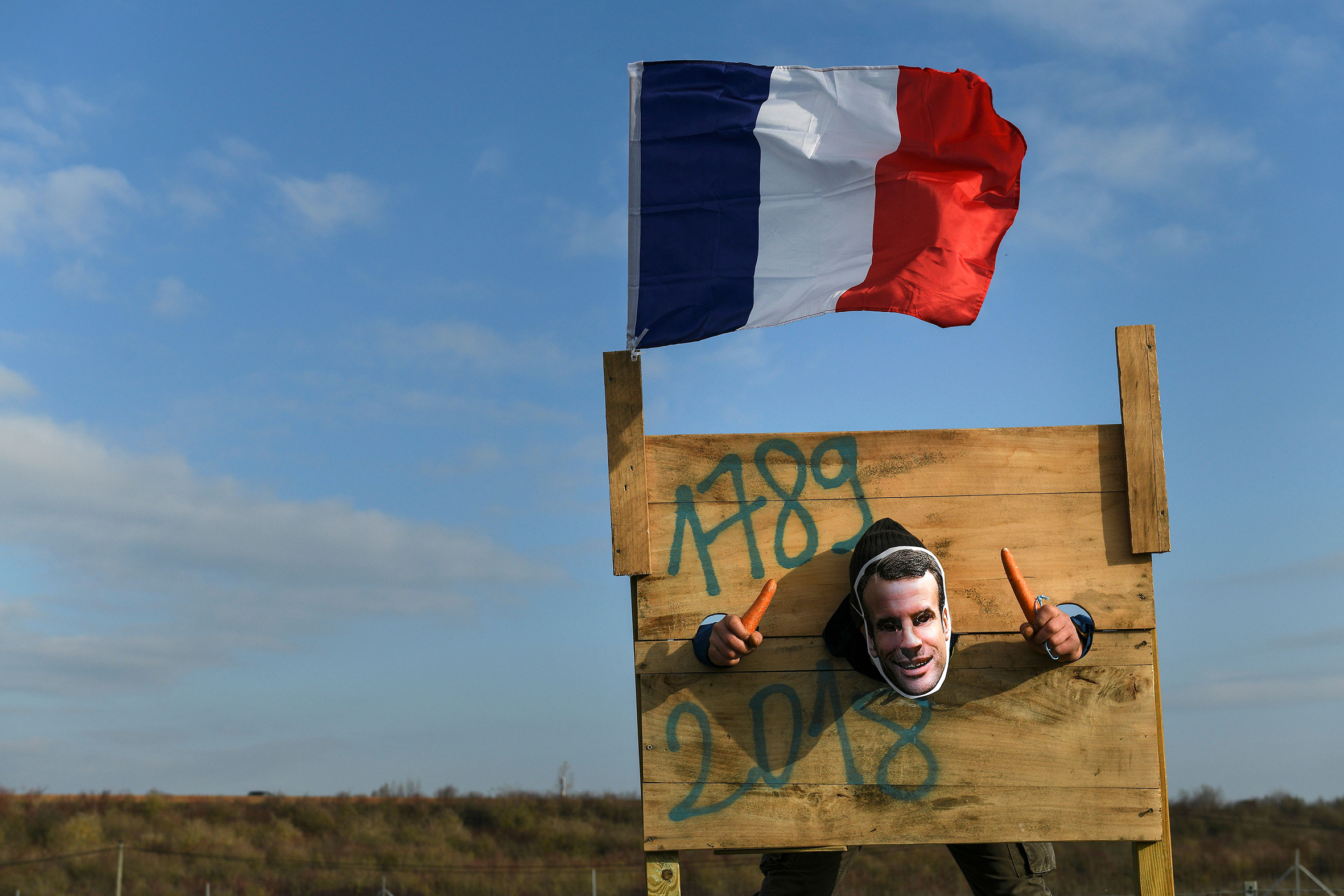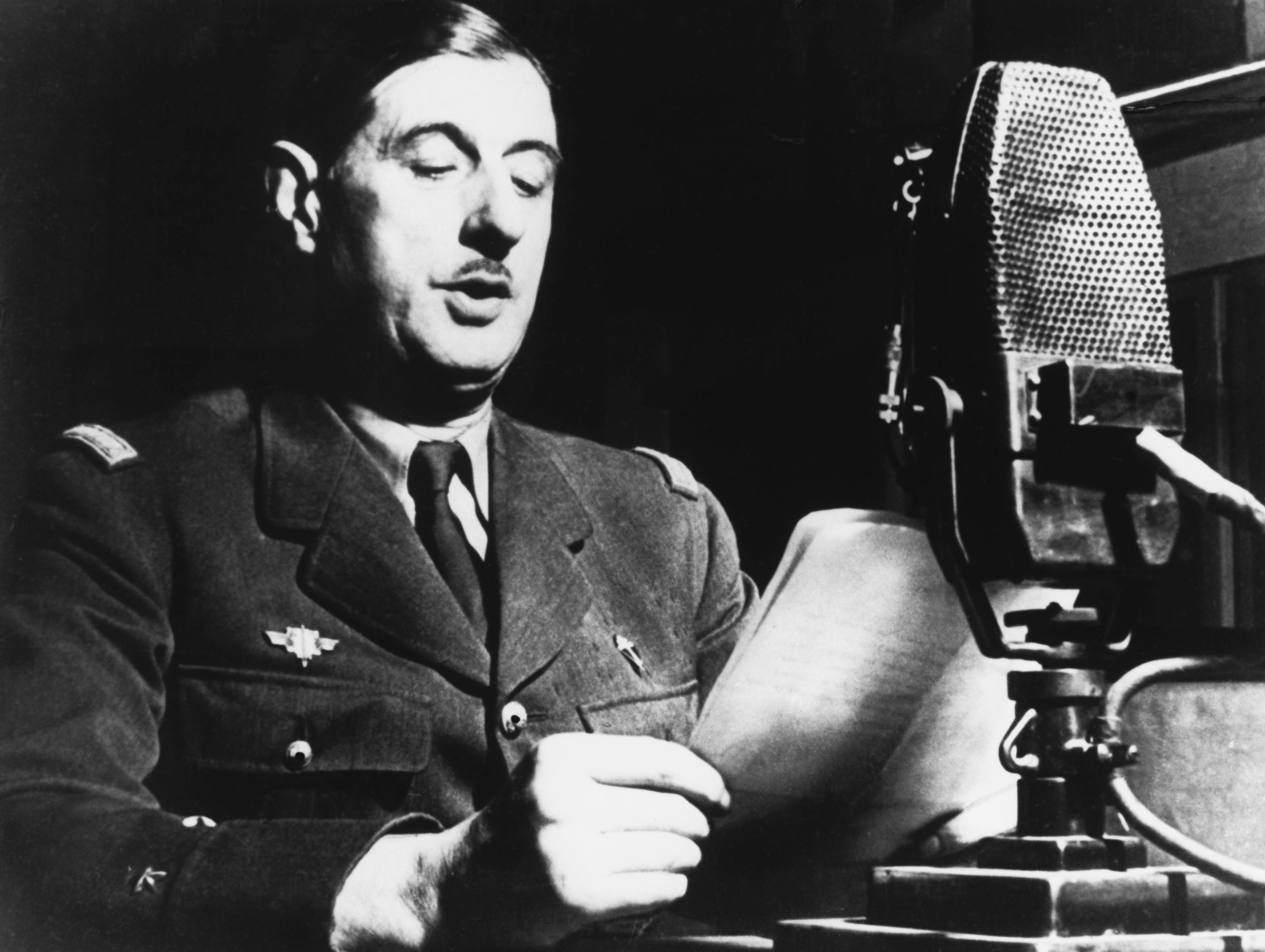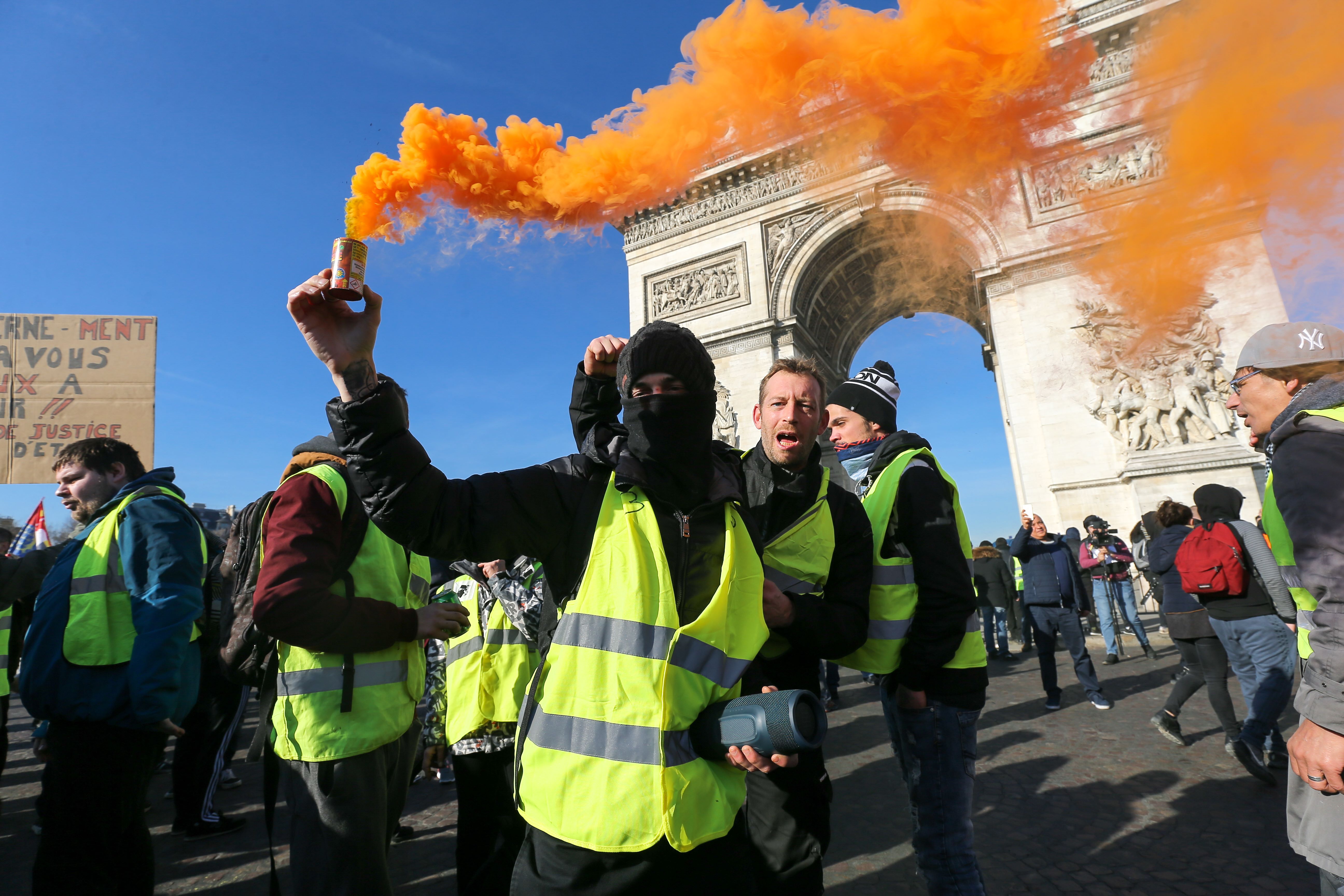There will be warm smiles, prolonged handshakes, pomp and circumstance at Windsor, and emotive references to past alliances this week when President Macron makes his state visit to Britain, the first since Nicolas Sarkozy stayed with Queen Elizabeth at Windsor Castle in 2008.
With President Trump’s America straining at the leash of the transatlantic alliance and President Putin’s revanchism threatening eastern Europe, the two nations of the entente cordiale have rarely needed each other more, certainly not since the conclusion of the Second World War. They lead Europe’s two indispensable, nuclear-armed militaries.
But when Macron and Sir Keir Starmer chair the 37th Franco-British summit this week, it will be an encounter between floundering leaders of floundering countries whose relations have been routinely prickly, not least when they were pledging undying friendship.
Emmanuel Macron and Keir Starmer meeting in Chequers in January
JUSTIN TALLIS/AFP VIA GETTY IMAGES
Nicolas Sarkozy was president during the last French state visit to Britain in 2008
CARL DE SOUZA/POOL/AFP VIA GETTY IMAGES
Both men are deeply unpopular after a run of political failures. Each won the support of a small percentage of the electorate, essentially because the clever-but-arrogant Macron was not Marine Le Pen, and the dull Starmer was not Rishi Sunak. Neither would have been credible leadership candidates when the likes of Blair, Chirac, Wilson or Mitterrand — let alone Thatcher or de Gaulle — dominated politics at the head of still-functioning mass parties. Their shaky legitimacy testifies to our democratic malaise.
In office, Macron’s plan to control the national debt led to disaster, provoking the seriously violent gilets jaunes uprising and culminating in political paralysis after his gamble on parliamentary elections. Towards Britain he remains resentful at Brexit and the Aukus submarine deal between Britain, Australia and the US, which excluded France and provoked an undignified international tantrum.
The Aukus submarine deal involving Australia, the UK and US will see new boats — such as this mock-up — in operation in the late 2030s
BAE/PA WIRE
Macron’s desire to pay Britain back for Aukus shows in his extreme demands over fishing, his attempts to exclude the UK from EU defence procurement and even the petty cancellation of celebrations for the tenth anniversary of the 2010 Lancaster House Agreement, which established tighter defence co-ordination between the two old frenemies. As for really “stopping the boats”? Vous plaisantez!
• Starmer has ‘no doubt’ Trump will back Aukus submarine deal
Starmer, in contrast, took office without much of a plan at all and has subsequently dithered over welfare reform. His one-sided “reset” with the EU demonstrates the weakness of a timid demandeur and inspires no confidence for the conduct of future diplomacy.
Yet even as their leaders flail, these two neighbours nevertheless share fundamental interests. The 1995 Chequers Declaration stated that there was no situation in which a threat to the vital interest of one was not a threat to both — a position accepted even before the First World War.
Eurocentric vs Atlanticist
Yet France and Britain have followed different and conflicting strategies for more than a century. Paradoxically, the differences stem from a common predicament: both countries have been trying for more than a century to punch above their weight.
By the mid-19th century, both were medium-sized states in a world that was seeing the rise of much bigger entities. Their large colonial empires were no substitute for core strength, and even drained resources — “millstones round our neck”, thought Disraeli.
A protester mocking Macron during the gilets jaunes demonstrations in 2018
SEBASTIEN BOZON/AFP/GETTY IMAGES
France’s shock 1871 defeat by Germany proved it was no longer the continent’s military and economic hegemon, and caused profound and lasting cultural and political trauma. Britain’s era of “splendid isolation”, avoiding permanent alliances, seemed less splendid after the struggles of the Boer War from 1899-1902, with Russia, Germany and the United States growing stronger. Britain’s power and security rested on control of the seas, and those days were numbered due to German and American naval expansion.
Choices made when Queen Victoria reigned still underlie policy today. France (population in 1900, 38 million) was obsessed by somehow countering German power (56 million and with a stronger economy). Britain (population 41 million), long since determined to avoid enmity with America (76 million), began prolonged wooing to make it an ally.
Two world wars confirmed these fundamental choices. France, aware of the fragility of victory in 1918, proposed European integration as the future way to control Germany; and in the 1950s it resumed this policy with the Coal and Steel Community, later the Common Market and finally the European Union.
Britain, having helped to engineer America’s reluctant entry into the First World War, and having been spared an interminable and devastating stalemate with Nazi Germany by America’s alliance in the Second, made the “special relationship” its diplomatic religion. France and Britain had been Europe’s principal colonial empires, and the loss of those empires — of dubious practical benefit, but sources of comforting prestige — strengthened their respective Eurocentric and Atlanticist priorities.
Imperial distinctions
But the two nations took very different approaches to the post-imperial world, primarily due to the gigantic influence of Charles de Gaulle. Under his presidency the French reacted against their steep loss of power and status (through the debacle of 1940 and bloody defeats in Indochina and Algeria) by shameless self-assertion: de Gaulle characteristically decided that “France must act like a great power precisely because she no longer is one”. This involved provocative gestures such as expelling the military headquarters of Nato in 1966 and proclaiming support for Quebec nationalism in 1967.
Charles de Gaulle in London on June 18, 1940
HULTON-DEUTSCH COLLECTION/CORBIS VIA GETTY IMAGES
De Gaulle’s intention was that European leadership would restore France’s world role, including determined neocolonialism in Africa and the Pacific. The French ruling elite is unashamedly Gaullist in spirit, proud of its overseas possessions and the global reach they confer.
The British elite followed the opposite path, of which the Chagos Islands fiasco is the latest manifestation. A loss of self-confidence led Harold Macmillan and most of his successors to embrace “management of decline” as sophisticated policy. They begged to enter the Common Market (Britain was “the sinking Titanic” and Europe “the lifeboat”), downgraded the Commonwealth and embraced a subordinate role as America’s faithful auxiliary — Greece to America’s Rome, as Macmillan hopefully put it. Currying favour with Washington as its “bridge” to Europe was a major reason for joining the EEC and for resisting Brexit.
The French worked ruthlessly to harness the EU to their national strategy, including bullying Germany into accepting the euro. But the pro-European British establishment never developed a clear idea of what “Europe” was for, other than as their comfort blanket: having a “seat at the table” was an end in itself, while asserting British national interest was bad taste to “good Europeans”. Ironically, the only significant British contribution to the “building of Europe” came from Margaret Thatcher: the single market.
The end of the ‘peace dividend’
Today, the fundamental strategies that Britain and France have pursued for more than a century appear equally bankrupt. The special relationship has been exposed by Trump as sentimental whimsy. France’s determination to make “Europe” its global pedestal has collapsed with the irrelevance of the EU over Ukraine and the Middle East. Trump’s bombing of Iran, which happened while Britain, France and the EU were vainly negotiating with the Iranians, exposed French and British illusions. Starmer and David Lammy, the foreign secretary — like Macron and his foreign minister, Jean-Noël Barrot — dared not even say whether they supported the attack on Iran or opposed it, repeating lamely that “we were not involved”— impotence masquerading as policy.
Both countries face similar predicaments. They have overspent the “peace dividend” — the financial bonus that came with the end of Cold War defence spending — and allowed their armed forces to wither. The fact that they are western Europe’s principle military powers is proof not of their strength, but of Europe’s weakness, vulnerable to a Russia whose GDP is no greater than Spain’s.
Like most of their neighbours, both have committed the lion’s share of national income to insatiable welfare systems and oversized bureaucracies. Both feel they have to be attentive to the views of certain ethnic minorities. Both have public-sector lobbies formidable at the ballot box and on the picket line. Both seem near the limit of taxation and borrowing. So neither can expect economic growth to alleviate their problems.
Protesters at an anti-government demonstration in Paris on February 16, 2019
MICHEL STOUPAK/NURPHOTO/GETTY IMAGES
Despite their shared obsession with national decline, Britain and France do remain great powers, with seats on the UN security council. The most recent diminution in power and influence is due not to geopolitical inevitability but to political choices, aggravated in Britain’s case by its elite’s palsied embrace of national self-abasement.
So what will Starmer and Macron have to talk about at their summit, other than mutual commiseration? Both now pay enthusiastic lip service to the pressing needs of defence. Both speak loudly while carrying a small stick. No one is listening any more. Both countries may have come to the end of an era in which their strategy was derived from history and buoyed by the prestige and influence inherited from past greatness. The ineptitude of their present leadership merely makes this cruelly obvious.
If they wished to play a meaningful part in the future of the world, they could work seriously on a Franco-British “special relationship”. The foundations are already there, in the Lancaster House Agreement, including on nuclear weapons development, which the recent national security strategy rightly describes as “unparalleled in Europe” for its closeness. But as long as a resentful Macron and a weak Starmer are in charge, Britain is almost certain to lose more than it gains from the relationship. Might their eventual successors one day build a relationship that matches the rhetoric and enhances Europe’s security? Will it be too late?
Robert Tombs is co-author of That Sweet Enemy: The French and the British from the Sun King to the Present. John Keiger is the author of France and the World since 1870.
